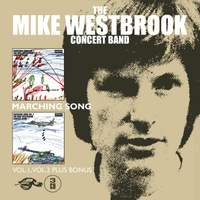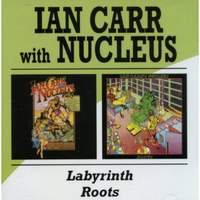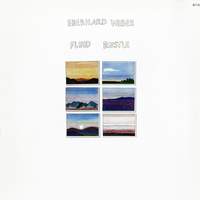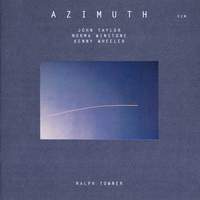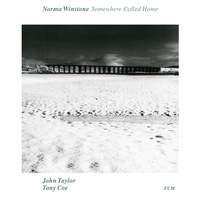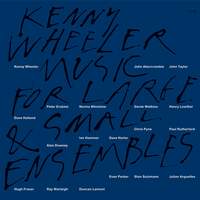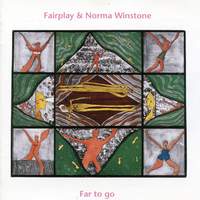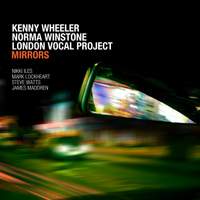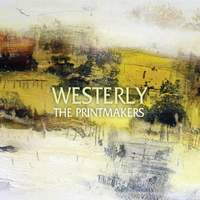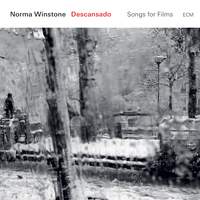Artist Profile,
Norma Winstone, First Lady of British Jazz

Whether or not you were already familiar with the Canadian rapper and singer Drake, it may come as a surprise that the hip-hop artist has recently turned to an historic experimental jazz recording for an elusive sample on his latest album. ‘IDGAF (feat. Yeat)’, which has already clocked over 150 million streams on Spotify since its release in October, has struck numerous listeners and members of the press for its inclusion of a minute-long snippet of a track by the ECM-trio Azimuth, which features an enigmatic blend of synthesiser, flugelhorn and vocals.

“Travelling forever in the dark/Darkness into blackness/There and back, it's always black.” These are the cryptic words from ‘The Tunnel’, which first appear before a thunderous jumpscare of trap beats and auto-tuned rap suddenly hijacks the soundstage. What’s so mystifying about this hidden treasure is the soft and breezy nature of the singer’s voice, which, at times, sounds as if it's eminating from a world of its own. There is a certain instrumental quality to this lurid melody; when Kenny Wheeler’s brassy counterpoint begins to intermingle, one no longer hears just a singer and her accompanist, but two integral performers. That caressing voice belongs to Norma Winstone, grande dame of British jazz and a key figure in the last half-century of artistic innovation across the genre. From her early years as a pioneer amidst the underground jazz scene to her more recent endeavours as a recipient of numerous accolades and awards, Winstone possesses a raw skill as distinctive as Miles Davis’ trumpet embouchure or Bill Evans’ zen-like sensitivity for the keyboard. She is best known, perhaps, for her intuitive employment of a unique wordless vocal style (think, ‘musical vowels’) along with the warm English accent she implements through her serene interpretations of lyricists that range from Ira Gershwin to Lewis Carroll.
Norma Ann Winstone (née Short) was born in Bow, East London in 1941, shortly following the area’s devastation during the Blitz. Raised initially with a musical upbringing in Dagenham, Essex, she took piano lessons at home before tuning in to the sounds of Frank Sinatra and Ella Fitzgerald via the airwaves of Radio Luxembourg. When her formal musical education ceased due to material constraints, Norma adopted a more amateur form of self-training in the form of singing along and improvising to records she admired by the likes of Oscar Peterson and the Dave Brubeck Quartet (and, most notably, the whispery saxophone of Paul Desmond). With the encouragement of a new music teacher who had recognised her blossoming musical appetite, a teenage Norma auditioned for the Trinity College of Music, where she would inevitably take up weekend classes for the next few years.
Not before long, Norma had graduated onto the London scene and, by the tail end of the sixties, she was lending her talents to numerous live acts around the capital. One such engagement came alongside pianist and composer Michael Garrick, with whom Norma made her first recordings as a regular bandmate on the Argo label – a quaint reminder of post-war Britain and its inspired cultural climate. What was immediately different from other ‘jazz’ singers of the day such as Ottilie Paterson, say, was that Norma was just as much a part of the ensemble as her collaborators; that is, her vocal contributions were not always front and centre like the glitzy showmen of before, but could be found (for better or worse) buried amongst the ruckus. In fact, Norma’s already-attuned musicianship and instant ability to vocalise with instrumental melodies shone a light on the flexible tendencies of her naturalistic young pipes, which she often demonstrated through various forms of large-scale musical mischief and mayhem.
Always the first port of call in contemporary jazz, Winstone’s talents were routinely credited on a host of ambiguous and experimental new releases over the coming decade, with appearances on records by Joe Harriott, Mike Westbrook and, of course, Edge of Time (1972) – her groundbreaking solo debut. But it was as one third of Azimuth, the group formed by ECM label-founder Manfred Eicher which featured her former-husband John Taylor along with frequent colleague Kenny Wheeler, that she began to appreciate her individual sound as an artist for the first time. Perhaps it was owing to the label’s visionary production techniques, inspired by an intrepid philosophy of silence and space, that Norma’s creative output began to adopt a more introspective approach than the rousing cacophony her previous work and collaborations had felt. Her own music since then, whilst taking on different forms, has always maintained a signature brand of cool-headed mellowness, be it in the form of Nikki Iles’ Printmakers or her final collaboration with Wheeler and the London Vocal Project on Mirrors (2013). Norma Winstone continues to trailblaze to this day as a performer, lyricist and teacher. What's more, if her recent attainment is anything to go by then there are still plenty years of thoughtful innovation yet to come.
Discover some of Norma's best-loved recordings and appearances below...
Available Formats: MP3, FLAC
Available Formats: CD, MP3, FLAC
Available Formats: 2 CDs, MP3, FLAC
Available Formats: MP3, FLAC
Available Formats: CD, MP3, FLAC
Available Formats: CD, MP3, FLAC, Hi-Res FLAC


